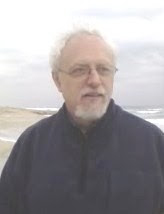
Last Thursday was the 41st anniversary of the death of Thomas Merton. Interfaith Paths to Peace and St. William Church here in Louisville hosted a noontime vigil for peace in Afghanistan that day to mark the anniversary.
But as I look back, last week was one that was filled with death and the reminders of death.
Last Monday night I participated in the annual Memorial Service of Mothers Against Drunk Driving. The service honors the memory of those killed in the last year by drivers who were under the influence of alcohol or drugs. That event was attended by about 120 survivors and family members of those being remembered. It also was attended by over 200 people who are part of a diversion program operated by our county prosecutor's office. This program directs offenders to attend the memorial service as a way of reminding them what the results of drunk driving can be. I found the service deeply compelling for two reasons: my Uncle Mac was killed by a drunk driver when I was 10; and though I have never been arrested for drunk driving, I am a recovering alcoholic .
Other things served as reminders too.
One was last Wednesday's noontime meditation. I lead a noontime meditation once a month built around the concept of "Lectio Divina" a meditation that can take people into a deeper understanding of scripture and sacred stories from the world's many religions. The story we meditated on this last Wednesday was very much concerned with how we deal with our memory of the dead. Here's what we read:
Many African societies divide humans into three categories: those still alive, the sasha, and the zamani. The recently departed whose time on earth overlapped with people still here are the sasha., the living dead. They are not wholly dead, for they live in the memories of the living who can call them to mind, create their likeness in art, and bring them to life in anecdote.
When the last person to know an ancestor dies, that ancestor leaves the sasha for the zamani, the dead.
As generalized ancestors, the zamani are not forgotten but revered. Many can be recalled by name. But they are not living dead.
--the epigraph from the book, The Brief History of the
Dead
A final jolt came when I learned on Thursday afternoon that the 52 year old husband of a friend had died suddenly of a heart attack that morning. The weekend was filled with services and preparations for meals aimed at easing the grief of the widow and her sons.
To honor Merton and all of the dead I have been thinking about, I offer here a link to the song, Ashokan Farewell. The link contains not only the tune but also the composer telling the story of how the song came to be. I first heard it years ago whenI watched the Ken Burns documentary about the Civil War. In the documentary it was a repeated motif reflecting the grimness of war and violence. The tune is sad, and sounds like a longing for home, or a lament for a lost love, or the bittersweet memory of those we miss.


No comments:
Post a Comment